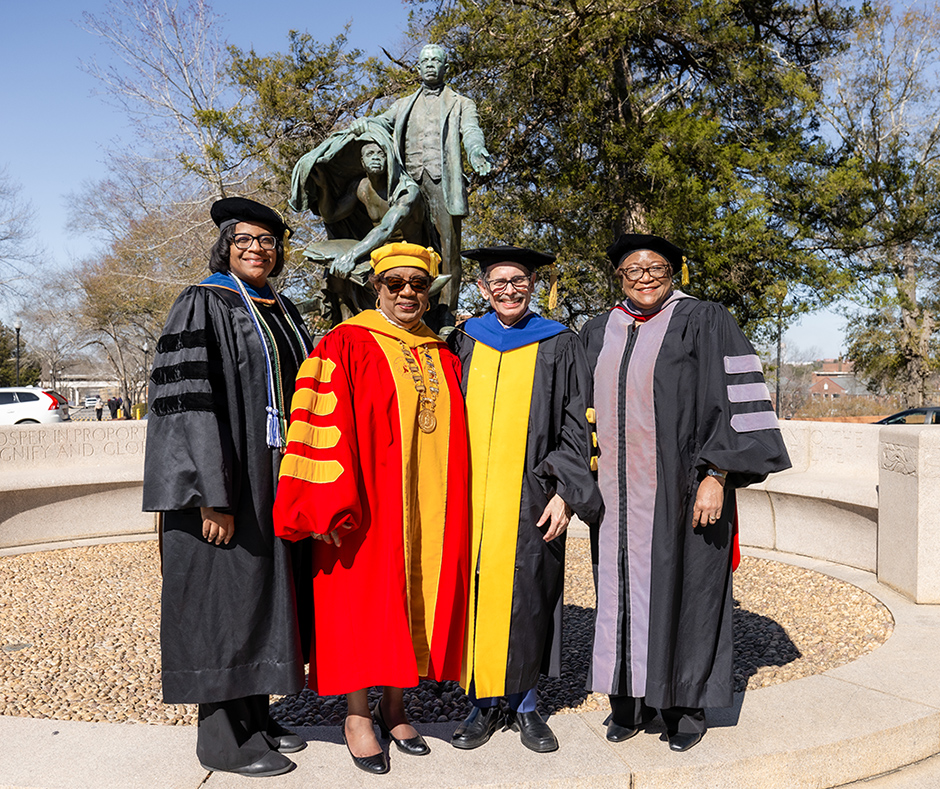Courtesy of Tuskegee University
As he used the power of R.L. Sharpe’s poem “A Bag of Tools” to illustrate a number of inspirational lessons, Dr. Manjit K. Misra, Director of USDA National Institute of Food and Agriculture, carried the audience of the 23rd George Washington Carver Convocation through an address that wrapped the legacy of Dr. Carver around the power of life revealed from a seedling to plant, to the value of food as medicine and brought the students back to a list of tools he recommends they carry through life.
A scientist with an appreciation of art in all forms, Dr. Misra connected Dr. Carver to research, perseverance, creativity and the power of the seedling his life-size statute holds at Iowa State University, where they both studied. That seedling becomes and gives food, and the vision Dr. Carver had for this university – now a top producer of electrical, mechanical and aerospace engineers – has grown in size and greatness, he said.
Tuskegee has planted seeds of knowledge and by nurturing them, created an environment for knowledge to grow. “Dr. Carver said great good resides in anything that grows.”
Dr. Misra said the USDA is focused on many programs that Tuskegee students would find interesting and that internships are available at the National Institute of Food and Agriculture, where they use a slogan: Let Food Be Thy Medicine.
“Food security and human healthcare are interconnected,” he said. “Food is not just connected to health, but to strength. Food security and national security are connected. You can see that situation in the Ukraine.”
He went on to say that Dr. Carver’s vision that nutritional food is a benefit for physical health, but the best food for mental health is the beauty of thought. “It is the human being inside that really counts.”
“Dr. Carver saw science and spiritually as complementary to each other, like two sisters in a sari,” he said referencing the traditional Indian dress for women.
As he rounded his remarks to a close, he returned to the tools students should consider.
“Get a passport and be ready to see the world. Expand your horizon. Learn a new language. Develop strong networks through service. Find good mentors. Be a mentor to somebody. Say yes. When an opportunity is given to you, say yes. Pave a path with these tools as steppingstones,” he said. “Continue the legacy of service of Dr. George Washington Carver and be grateful for the tools you have gathered here. Gratitude is a decision, not a feeling. Dream big like George Washington Carver and go forth with purpose and pride.”

